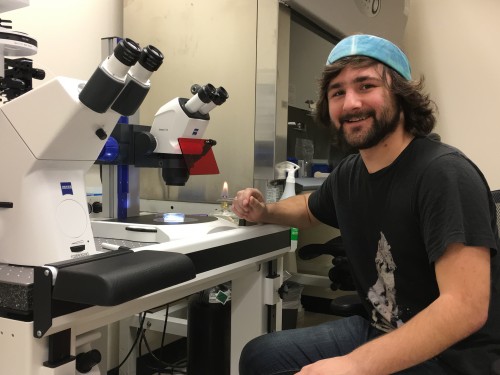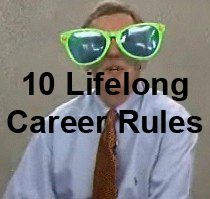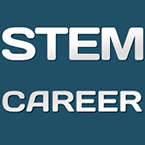It is no secret that graduate school requires an immense amount of hard work and dedication. In his interview, Dylan Jensen, a second year in CSU’s Biochemistry and Molecular Biology department, describes some major differences between his undergrad and graduate school experiences. In particular, Dylan suggests that graduate school can often be “a complete shakeup” for many students who aren’t used to getting anything below straight A’s and B’s.
So how do graduate students find the drive to keep going? “If the project inspires you, the excitement of being on the cutting edge will help all of the other trials and tribulations of graduate school seem worth it.” Read more about Dylan’s passion for research and see if you too are up for this challenging, fulfilling work!

Year in present degree: 2nd year CSU’s Biochemistry and Molecular Biology Department
Your previous degrees, majors, & schools: B.S. in Biochemistry from University of Oregon
- What shaped your interest in your present research agenda?
I have always been interested in understanding how such a diverse group of organisms exists on this planet, and further, how so much diversity occurs within a single organism. The sheer number of different cell-types that we have in the human body is pretty incredible, and it all arises from a single fertilized egg. That’s what got me interested in this research, but the use of cutting edge technologies to better understand this diversity is what drove me to choose my current project.
- What problem will your research help to solve?
My research will help solve a few outstanding problems. First, the tools I am developing for watching how genetic messages, or RNAs, are moved throughout live cells can be adapted by other researchers to answer a wide variety of research questions. Second, exploring how different RNAs are segregated into different cells will help us understand exactly what makes one cell-type different from another. Finally, my research will provide useful information about what makes stem-cells so unique. This will help us move forward with stem-cell treatments and improve prognosis for many injuries and diseases.
- What advice do you have for high school and undergraduate students about entering this field/area of research?
My best advice for aspiring young scientists is to get involved early. As early as possible. The research experience is an amazingly rewarding, but frustrating process that challenges you like nothing else. Coming into graduate school with a strong background in research will help you become a successful graduate student and provide opportunities that wouldn’t otherwise exist.
- What helps an individual be successful in this field?
To succeed in this field, students need to love what they do. Research requires an absurdly strong work ethic to do well. If the project you work on doesn’t inspire you to come into the lab at all hours of the day, the entire process will seem miserable. If the project inspires you, the excitement of being on the cutting edge will help all of the other trials and tribulations of graduate school seem worth it.
Stemcareer.com includes these interviews as part of the GAUSSI Career Planning program under the direction of Rich Feller PhD, Professor of Counseling and Career Development, Colorado State University.








Comments are closed.